| Academic Program Examples | |
| 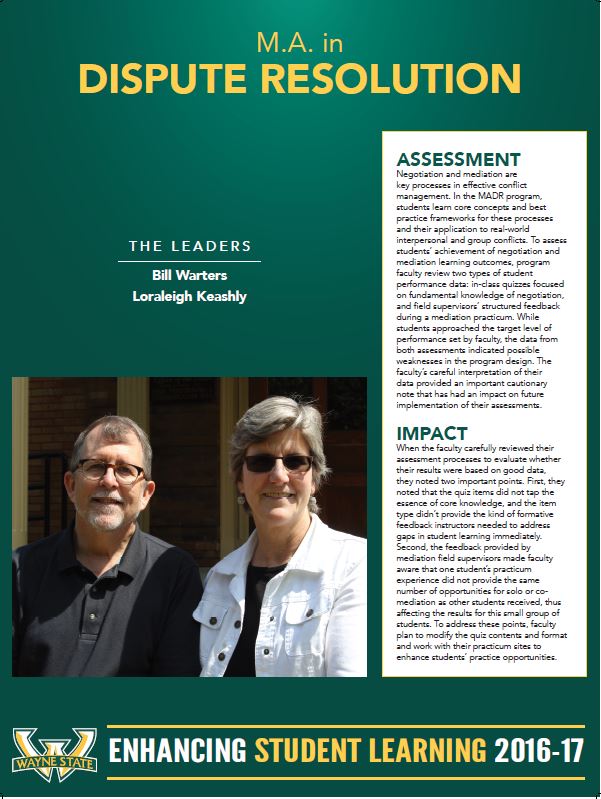
| Bill Warters and Loraleigh Keashly for the MA in Dispute Resolution - Learning outcomes assessed: Students apply negotiation and mediation processes to real-world interpersonal and group conflicts.
- Assessment methods: In-class quizzes and field supervisors' structured feedback
|
| 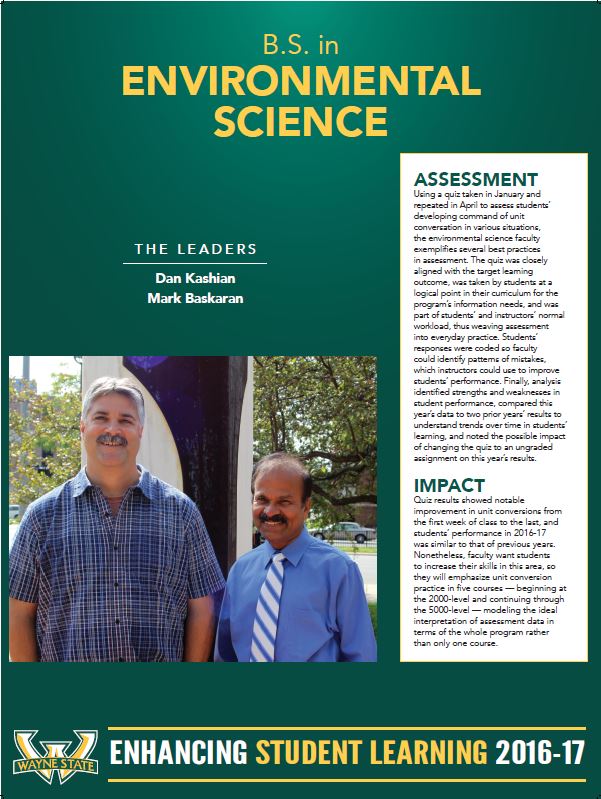
| Dan Kashian and Mark Baskaran for the BS in Environmental Science - Learning outcomes assessed: Students accurately converts units.
- Assessment method: Pre- and post-testing using an in-class quiz
|
| 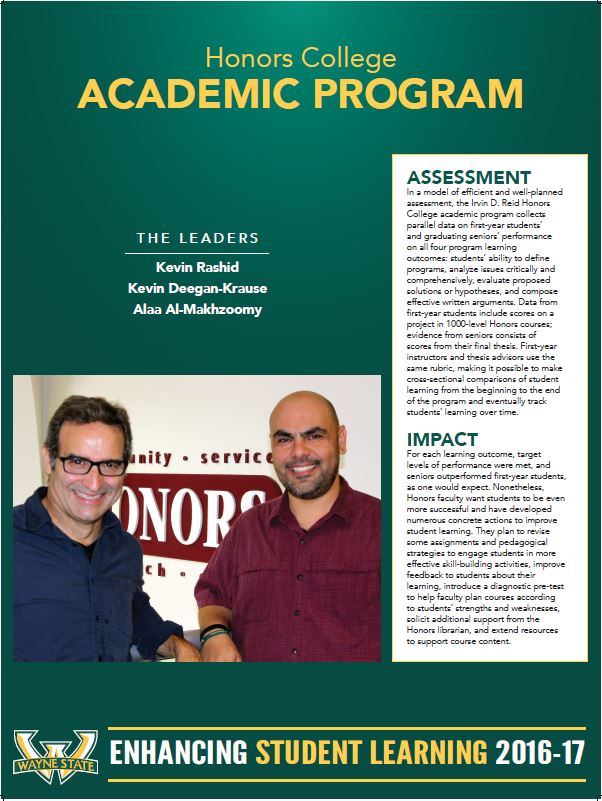
| Kevin Rashid, Kevin Deegan-Krause, and Alaa Al-Makhzoomy for the Honors College Academic Program - Learning outcomes assessed: Students define programs, analyze issues critically and comprehensively, evaluate proposed solutions or hypotheses, and compose effective written arguments.
- Assessment method: Cross-sectional comparison of rubric scores for first-year students' projects in HON 1000 and graduating seniors' theses
|
| 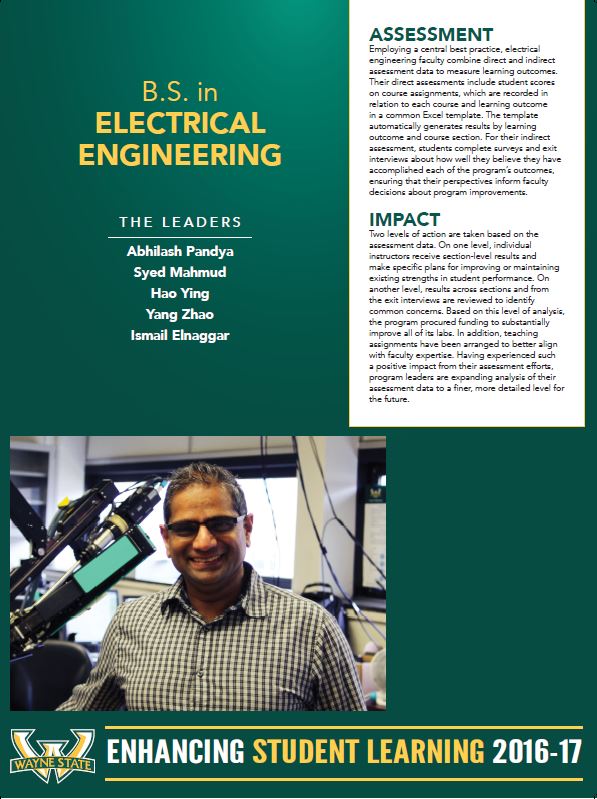
| Abhilash Pandya, Syed Mahmud, Hao Ying, Yang Zhao, and Ismail Elnaggar for the BS in Electrical Engineering - Learning outcomes assessed: All program outcomes, ranging from knowledge of electrical engineering theories and concepts to their application in problem-solving and indicators of lifelong learning
- Assessment methods: Course-based assignments, student surveys, exit interviews
|
| 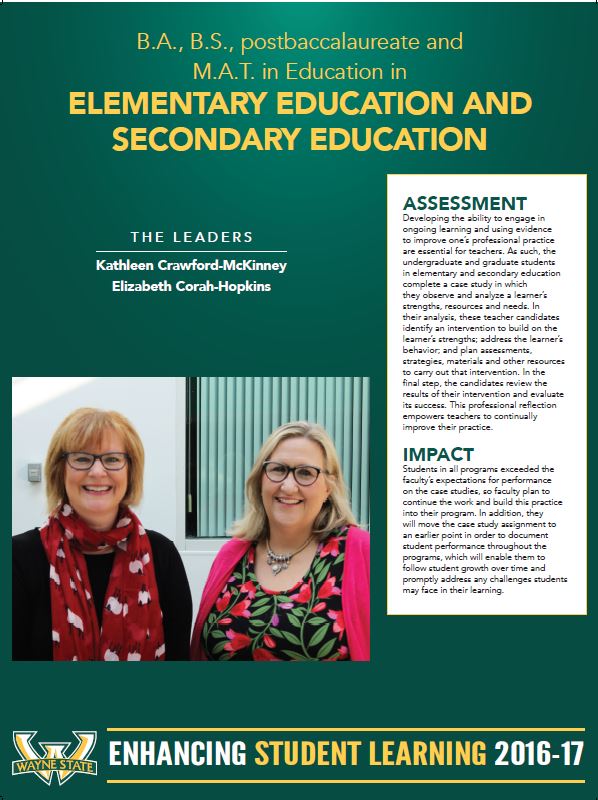
| Kathleen Crawford-McKinney and Elizabeth Corah-Hopkins for the BA, BS, postbaccalaureate and MAT in Education in Elementary Education and Secondary Education - Learning outcomes assessed: Students engage in ongoing learning and use evidence to improve their professional practices.
- Assessment method: Case study
|
| 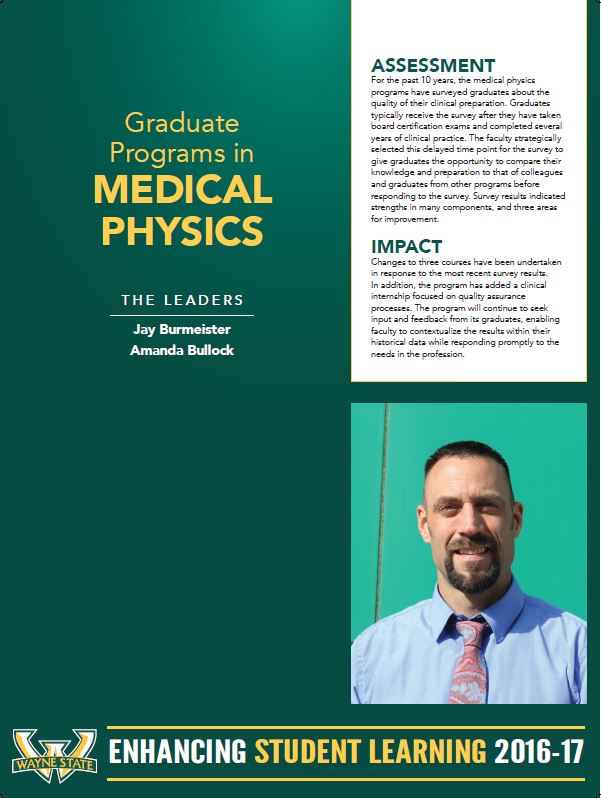
| Jay Burmeister and Amanda Bullock for the Graduate Programs in Medical Physics - Learning outcomes assessed: All program outcomes related to content knowledge and clinical practice
- Assessment method: Annual survey of graduates
|
| 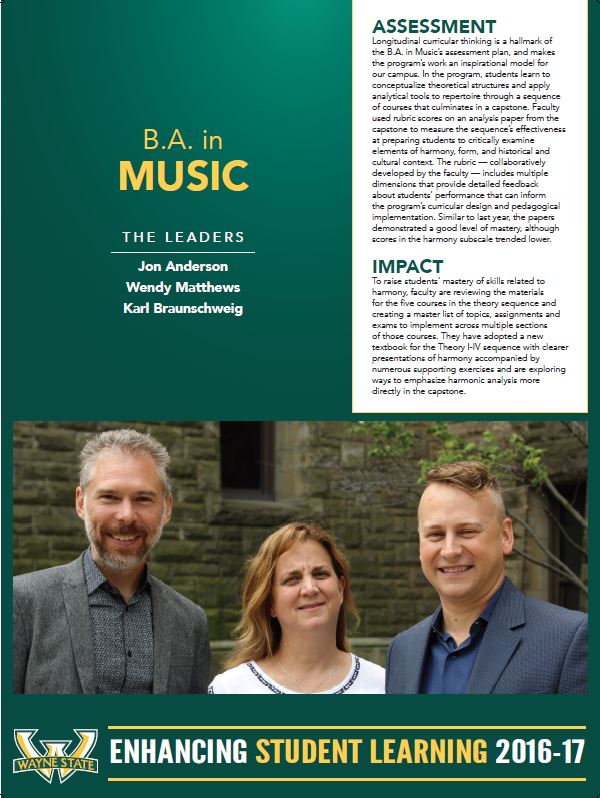
| Jon Anderson, Wendy Matthews and Karl Braunschweig for the BA in Music - Learning outcomes assessed: Students critically examine elements of harmony, form, and historical and cultural context in the repertoire.
- Assessment method: Rubric scores on a capstone analysis paper
|
| 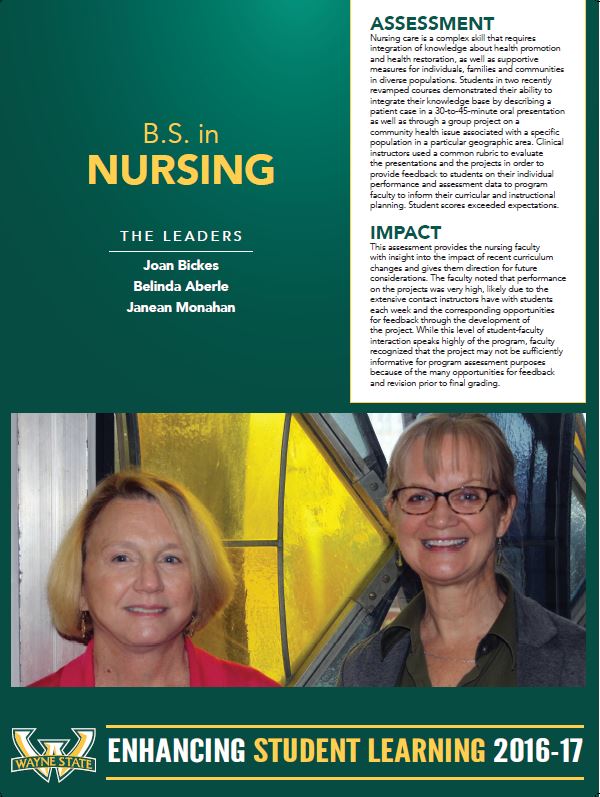
| Joan Bickes, Belinda Aberle, and Janean Monahan for the BS in Nursing - Learning outcomes assessed: Students integrate knowledge about health promotion, health restoration, supportive measures for individuals, families, and communities in diverse populations.
- Assessment method: Rubric scores on an oral presentation of a patient case and on a community health group project
|
| 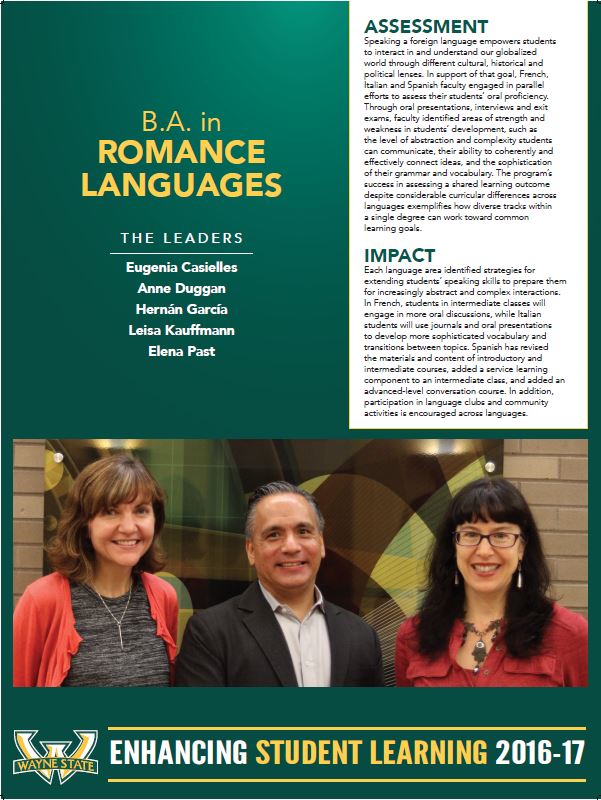
| Eugenia Casielles, Anne Duggan, Hernán GarcÃa, Leisa Kauffmann, and Elena Past for the BA in Romance Languages - Learning outcomes assessed: Students communicate accurately about abstract concepts in extended discourse in the target language.
- Assessment method: Oral presentations, interviews, exit exams
|
| 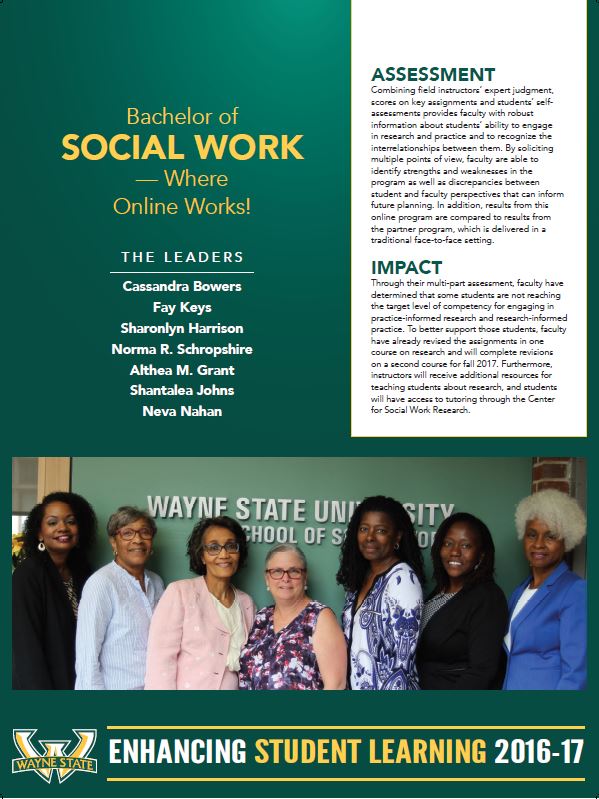
| Cassandra Bowers, Fay Keys, Sharonlyn Harrison, Norma R. Schropshire, Althea M. Grant, Shantalea Johns, and Neva Nahan for the Bachelor of Social Work - Learning outcomes assessed: Students engage in research and practice and recognize the interrelationships between them.
- Assessment method: Field instructors' feedback, course assignments, students' self-assessments
|
| Student Services Program Examples | |
| 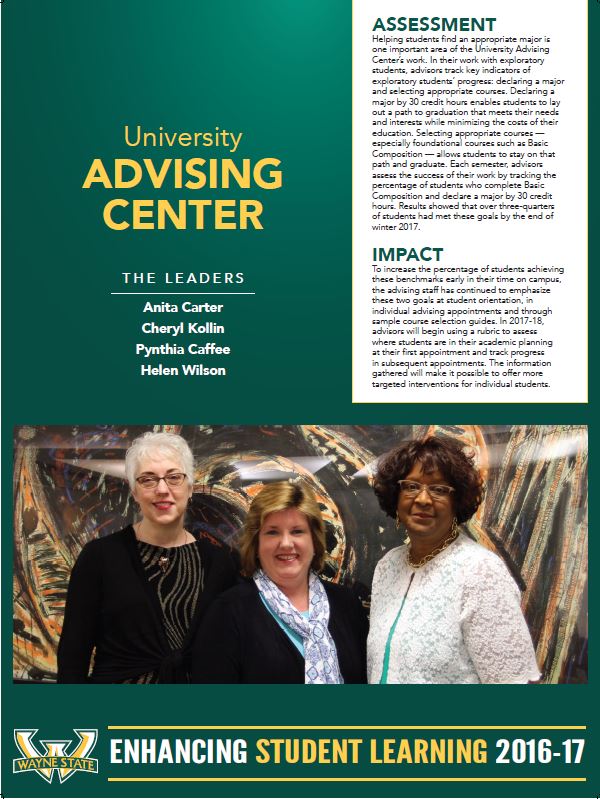
| Anita Carter, Cheryl Kollin, Pynthia Caffee, and Helen Wilson for the University Advising Center - Program outcomes assessed: Exploratory students declare a major by 30 credits and select appropriate courses to graduate in a timely, cost-effective manner.
- Assessment method: Tracking the percentage of students who complete Basic Composition and declare their major by 30 credits
|
| 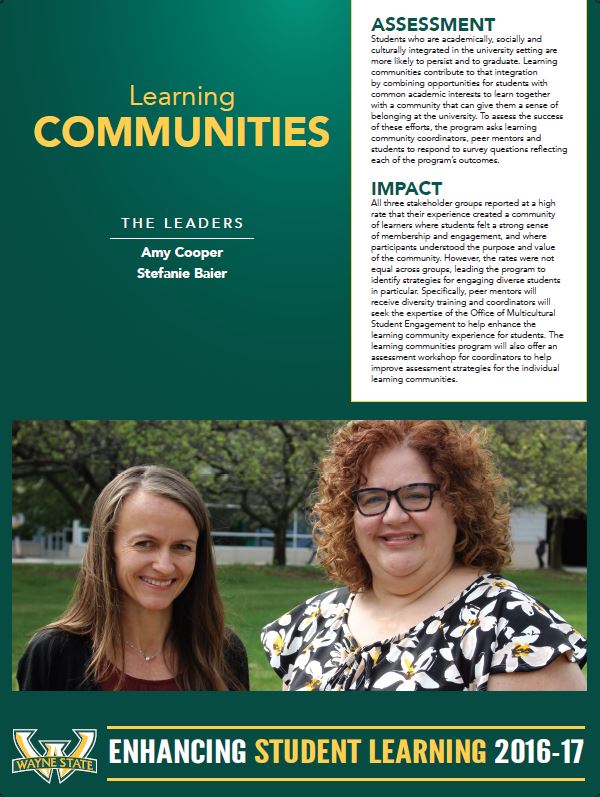
| Amy Cooper and Stefanie Baier for Learning Communities - Program outcomes assessed: Participation in a learning community creates a sense of membership and engagement; students understand the purpose and value of the community.
- Assessment method: Surveys of learning community coordinators, peer mentors, and students
|